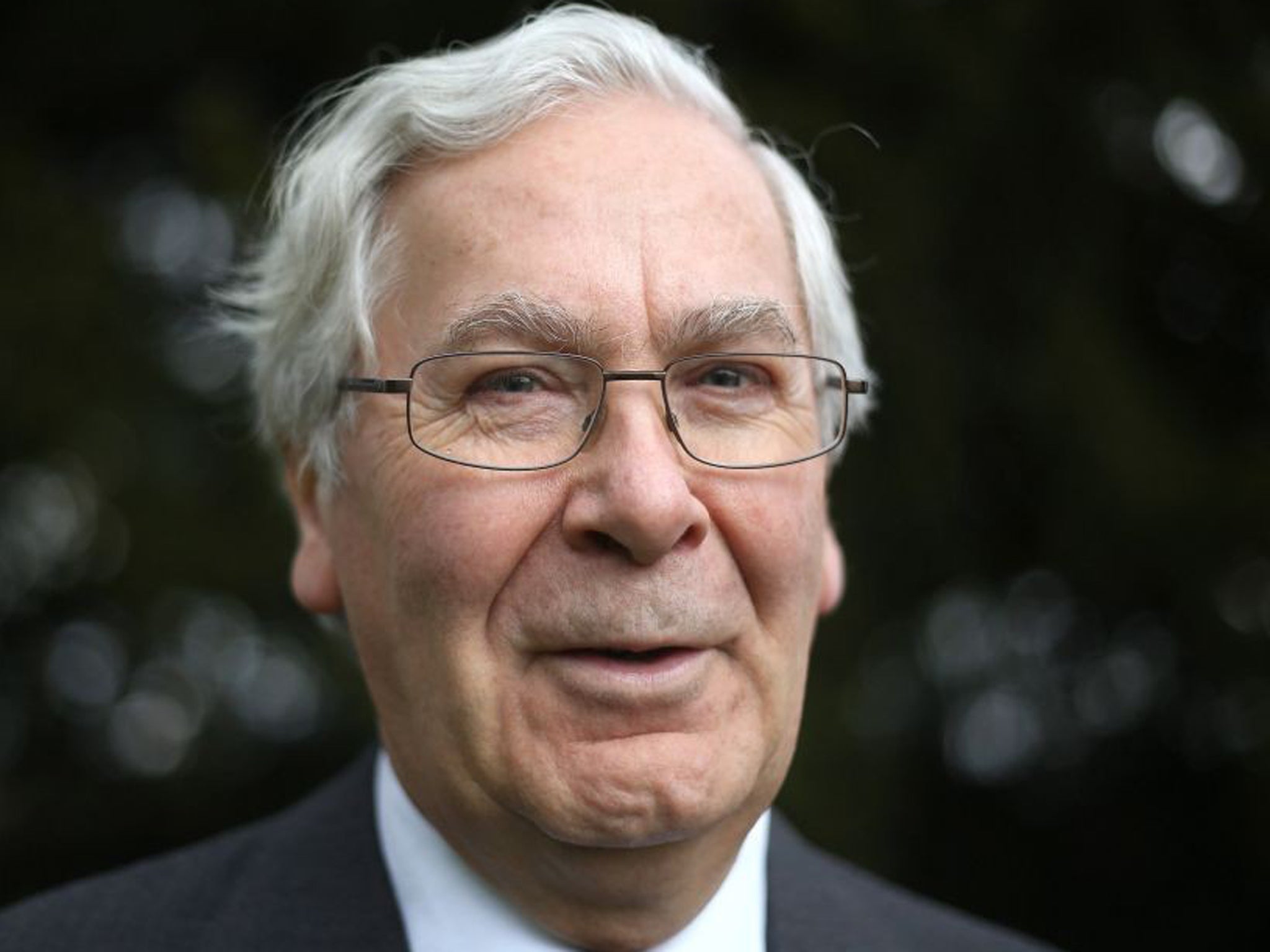Julian Knight: How Sir Mervyn blotted his copybook by neglecting the needs of Britain's savers
The outgoing Bank Governor saw the financial crisis coming and was a steadying influence – but he could have done more for the prudent

Your support helps us to tell the story
From reproductive rights to climate change to Big Tech, The Independent is on the ground when the story is developing. Whether it's investigating the financials of Elon Musk's pro-Trump PAC or producing our latest documentary, 'The A Word', which shines a light on the American women fighting for reproductive rights, we know how important it is to parse out the facts from the messaging.
At such a critical moment in US history, we need reporters on the ground. Your donation allows us to keep sending journalists to speak to both sides of the story.
The Independent is trusted by Americans across the entire political spectrum. And unlike many other quality news outlets, we choose not to lock Americans out of our reporting and analysis with paywalls. We believe quality journalism should be available to everyone, paid for by those who can afford it.
Your support makes all the difference.Sir Mervyn King conducted his last Bank of England interest rate meeting on Wednesday and, as for every shindig for the past four years, he left things unchanged.
Since the great financial crisis I have not quite been able to decide whether the central banker is one of those sage, rock-like types who genuinely believes that acting in haste means repenting at leisure – a man for all seasons, the archetypal central banker if you like, or in fact a do-nothing who is a touch sanctimonious in his utterings. Perhaps he is a little bit of both.
Take Sir Mervyn's appearance on Desert Island discs last week. Among his love for Aston Villa and cricket, the outgoing Bank of England Governor said things that most ordinary folk could agree with was that debt had got out of control. He added that he was in fact "surprised" that the populace wasn't angrier following the financial crisis.
However, Sir Mervyn of course was one pillar of the failed Tripartite system of overseeing the banks and the City in the run-up to 2008.
Now I know that he had often waxed in private on the dangers of the credit boom – I have been in a room where in 2005 he was asked to outline his biggest fear and he described almost the exact circumstances which were to occur a few years later.
Obviously, therefore, Sir Mervyn was wise, both before and after the event (particularly when he talked about moral hazard) but has he been truly active?
There are major limits on his actions of course and he is probably right to presume that the last thing a central banker should be is shrill or alarmist.
Yet I also think that perhaps since the crisis (and even before) he has been a little too much like Douglas Adams' great comedy creation Marvin the android from The Hitchhiker's Guide to the Galaxy, affected by severe boredom because he genuinely knows it all but feels he has little in the way of real control.
It is often said that Sir Mervyn was a "steady hand on the tiller" but was the supposed steadiness just inaction? As I said at the beginning perhaps the truth is a little bit of both.
One major failing though for sure of Sir Mervyn's tenure and one that may scupper his place in history is the bank's treatment of savers.
There has been a deliberate policy of supporting borrowers, who have after all got themselves into debt, off the backs of those who do the right thing for them – and, in fact, the wider economy – and save.
Four years plus of near-zero rates has decimated what was already a fragile savings culture in this country and for what?
All that has happened is that borrowers have not taken on new loans – or been barred from doing so – and haven't repaid nearly enough of what they owe despite the golden interest rate scenario (from their perspective).
The next stage of this of course will be inflation, which will effectively devalue the massive debt overhang from the spending splurge of the 1990s and 2000s but again will punish savers too.
Without a healthy savings culture there is no long-term future for our economy and I'm afraid that by ignoring the plight of savers Sir Mervyn and his fellow members of the monetary policy committee have been highly damaging.
We should have seen more of the Bank Governor talking up the need of financial institutions to truly value savers again rather than use them as something to milk.
Join our commenting forum
Join thought-provoking conversations, follow other Independent readers and see their replies
Comments